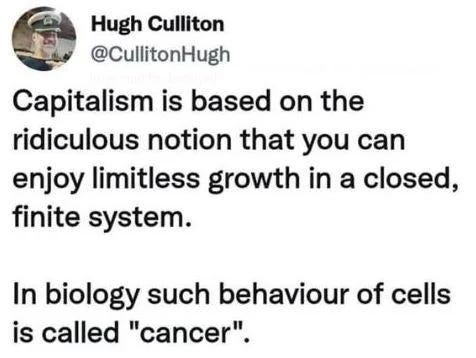Why the Continuous Improvement Mindset Needs to Die
Part 1 of 4 in "Harder, Better, Faster, Stronger"

In 2001, two French robots made a transhumanist anthem that would become one of the most iconic electronic tracks of all time. “Harder, Better, Faster, Stronger” portrays the unstoppable progress of technology and humanity’s obsession with productivity.
Funky, synthy, and hypnotic, the song is set to a music video that depicts 4 humanoids being manufactured in a space-age factory line to form a band. The song title would go on to become an instantly recognizable phrase in pop culture.
It would also become a possibly-inadvertent commentary on tech capitalism.
In 2025, as growth-obsessed tech companies cannibalize their own ecosystems desperately jumping from trend to trend hoping for a quick hit of that sweet, sweet heroin of viral profit (It’s Crypto! No, it’s NFTs! No, it’s the Metaverse! No, it’s AI!), I find it hard not to look at the song’s refrain through a less optimistic lens.
Let me tell you what this 4-article series is not. It is not anti-technology. It is not another pathetic recall to a simpler, social-centric lifestyle that never existed in the first place. As always, there’s a relevant xkcd.
Instead, this series invites you to look at the “Harder, Better, Faster, Stronger” nature of modern life, and feel empowered to choose how much you want to engage with it.
A gap that continues to widen
Sometime in late-2019, I was on the rooftop of our workplace, talking with my then-manager N. It was always a privilege talking to N, and I’ve learned a lot about business and work from him. The topic for the day was wealth.
Even today, I am reticent to talk about philosophy and -isms. I feel like I’m not qualified or well-read enough to make a halfway decent point. But that day, 5 years ago, with far less experience and weariness, I made a point which caught us both by surprise.
I said that capitalism is a self-defeating process.
All companies, with Amazon as the primary example that day, have the primary goal of wealth accumulation. They literally want to hoard wealth because that is the most direct measure of survivability. Businesses are built with the idea of surviving indefinitely, so they chase more and more money because there is a primary assumption that resources are infinite.
My assertion was that this assumption is wrong. In 2019, I was talking about how eventually large companies will have to hurt communities and smaller companies because there is only so much wealth available.
I am reticent to make these punditry claims because I feel like I’m not qualified to make them. And yet, we saw exactly this happen during the pandemic, with billionaires multiplying their wealth while poor people suffered.
We’re seeing ready-for-release movies get canned for tax write-offs. We’re seeing thousands of layoffs a year in the tech industry alone. We’re seeing more and more companies buying back stocks to consolidate ownership and wealth, and writing fat cheques for executives. And lest we forget, we’re seeing more extreme weather events than ever before.
And we’re seeing political systems that support this inequality because we cannot fathom large numbers.
More, more, be unstoppable, overcome it all!
The problem is not that companies are obsessed with money. The problem is that they’re obsessed with growth — they want to accelerate their earnings forever. The line on the graph must go up, so that it cannot go down!
Companies have been obsessed with economic growth since The Great Depression. But at some point much closer to the present, that mindset percolated to the people. Self-improvement became a multi-billion dollar industry as the idea of continuous development caught the imagination of the masses.
It’s a charming idea — “If I just keep becoming better, I can overcome anything”. In practice though, it’s not that simple.
I’ve mentioned before how this article by
fundamentally changed me. It made me realize that I’m not alone in my obsession with optimization in order to “win the system”. It’s actually a generational thing — millennials believe we can outwork anything, much to our detriment.I read that article in 2020, and while philosophically it changed me, I still find it hard to retain its lessons. I still end up working myself to the bone from time to time. I still catch myself obsessing over growth.
There is nothing wrong with wanting to grow. There is everything wrong with growth at all cost. At a systemic level, the obsession with growth causes the cannibalization of wealth as mentioned above.
At an individual level, it causes deep burnout and health risks. We’ve put any number of pretty bows on it to try and mask its ugliness — “growth mindset”, “1% better every day”, “hustle culture”, “grind era”.
Even “Do what you love” is not a self-love mantra. It’s a veil over another efficiency play — “do what you love so that you can do it for longer and become better at it.”
It’s also a veil over anxiety — “do what you love but you must be extremely good at it”, because ultimately success and growth are all that matter.
It’s a tremendous amount of pressure at every tier of existence, and it’s unsustainable.
If not this, then what?
First of all, it’s not your personal responsibility nor mine to fix corporate greed. We’re entirely too small to deal with it. As more pressure builds on corporate systems, either the political system will adapt, or things will break, mostly to audience applause. Probably both.
What we can do is focus on the individual. It’s not an answer we may want to hear, but at some point, we have to generate a feeling of sufficiency from within. The system is certainly not going to do it for us — it wants us to feel insufficient so it can exploit our labour and our minds.
We can’t fix the system, but we don’t have to internalize its ethos. We can be enough.
There are plenty of examples of people trying to cut back and be satisfied, whether it is minimalism within the norm, or whether it is more extreme like the Tiny-house movement.
Like I said above, it is easy to accept this philosophically. It is much harder to implement this in practice. Ultimately, it is a decision each of us have to make for ourselves.
We’re here for a limited time. We can work it harder and do it faster and hope that it makes us stronger. But if we want to fight the prevailing mindset and make it better, then we must contend with the grim reality that our work is never over.
The Harder, Better, Faster, Stronger series
Jan 05, 2025. Why the Continuous Improvement Mindset needs to Die
Jan 12, 2025. There’s a Poison Spreading Among Us
Jan 19, 2025. Will AI Survive User Apathy?
Jan 26, 2025. The Path of Greater Resistance








